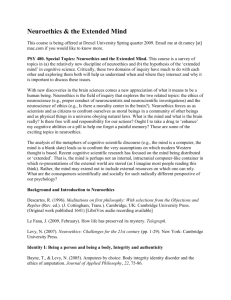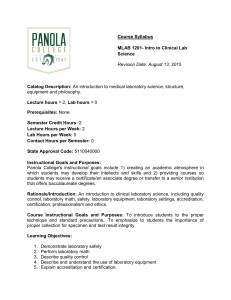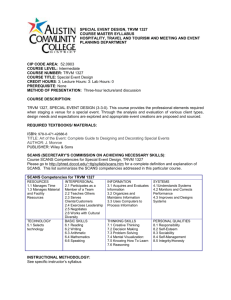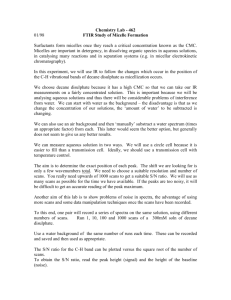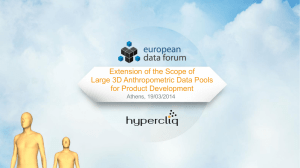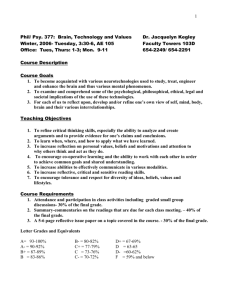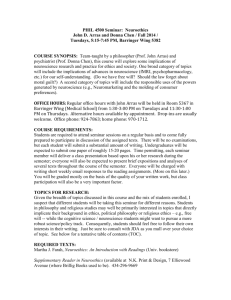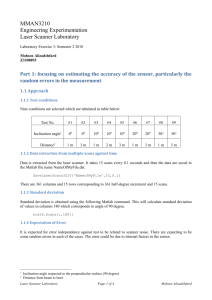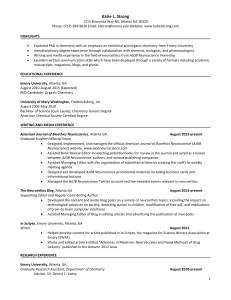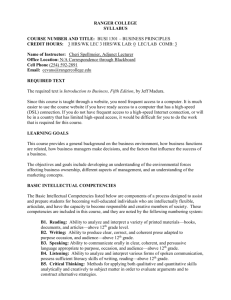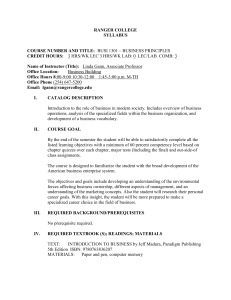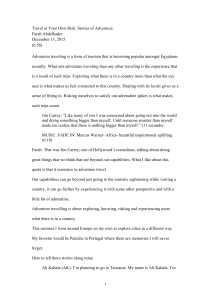Time - Stanford University School of Medicine
advertisement
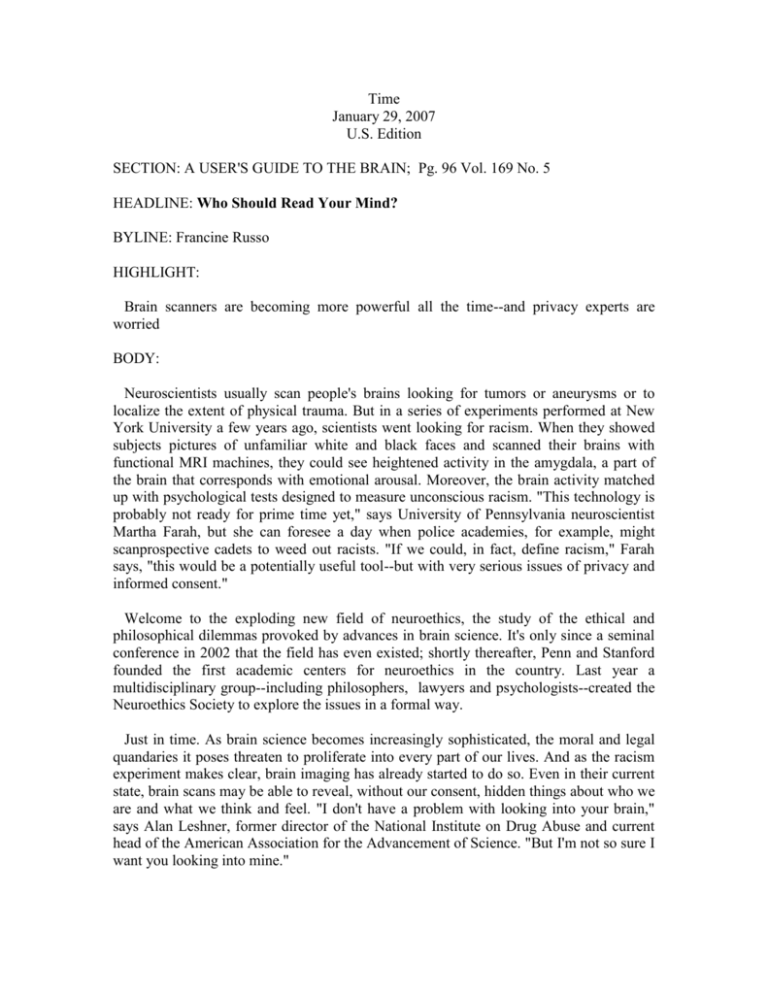
Time January 29, 2007 U.S. Edition SECTION: A USER'S GUIDE TO THE BRAIN; Pg. 96 Vol. 169 No. 5 HEADLINE: Who Should Read Your Mind? BYLINE: Francine Russo HIGHLIGHT: Brain scanners are becoming more powerful all the time--and privacy experts are worried BODY: Neuroscientists usually scan people's brains looking for tumors or aneurysms or to localize the extent of physical trauma. But in a series of experiments performed at New York University a few years ago, scientists went looking for racism. When they showed subjects pictures of unfamiliar white and black faces and scanned their brains with functional MRI machines, they could see heightened activity in the amygdala, a part of the brain that corresponds with emotional arousal. Moreover, the brain activity matched up with psychological tests designed to measure unconscious racism. "This technology is probably not ready for prime time yet," says University of Pennsylvania neuroscientist Martha Farah, but she can foresee a day when police academies, for example, might scanprospective cadets to weed out racists. "If we could, in fact, define racism," Farah says, "this would be a potentially useful tool--but with very serious issues of privacy and informed consent." Welcome to the exploding new field of neuroethics, the study of the ethical and philosophical dilemmas provoked by advances in brain science. It's only since a seminal conference in 2002 that the field has even existed; shortly thereafter, Penn and Stanford founded the first academic centers for neuroethics in the country. Last year a multidisciplinary group--including philosophers, lawyers and psychologists--created the Neuroethics Society to explore the issues in a formal way. Just in time. As brain science becomes increasingly sophisticated, the moral and legal quandaries it poses threaten to proliferate into every part of our lives. And as the racism experiment makes clear, brain imaging has already started to do so. Even in their current state, brain scans may be able to reveal, without our consent, hidden things about who we are and what we think and feel. "I don't have a problem with looking into your brain," says Alan Leshner, former director of the National Institute on Drug Abuse and current head of the American Association for the Advancement of Science. "But I'm not so sure I want you looking into mine." These technologies may become an intimate part of our lives sooner than we think. "It's not so futuristic," says Stanford neuropsychologist Judy Illes, "to imagine an employer able to test for who is a good team player, who a leader or a follower." Before such scans are used, neuroethicists warn, we must understand what they can and cannot do. A device that might be helpful in personnel testing, for example, might not be rigorous enough to be used in a criminal trial, where the standard of proof is higher. That's currently the case with the polygraph. But Farah is afraid that because of the high-tech aura of brain scans, people may put more faith in them than is warranted. Perhaps even more critical is the question of who should be allowed to peek into our brains. Employers? Schools? The government? The answers are far from clear. Employers, for example, already give psychological tests to job applicants, and schools test 3- and 4-year-olds to anticipate reading problems. Brain scans may actually give better results. But brain scans are also much more powerful and far more invasive, and the law is murky on whether they can be performed without our consent. We may feel instinctively that we have a right to brain privacy, but feelings have no legal standing. The courts may soon be forced to address these questions. Columbia University psychiatry professor Paul Appelbaum points out that current criminal law allows government agencies to invade bodily privacy when, for example, it lets police draw blood after a suspected drunk driving accident. But not always. Americans, for example, can't currently be compelled to give a DNA sample. Nor can they be forced to submit to an MRI or have electrodes fixed to their skulls without consent or a court order, says Hank Greely, a Stanford law professor. But it's conceivable that prosecutors might become much more aggressive in demanding brain scans--"like a search warrant for the brain," he suggests. "There's little precedent, and we're moving into new and scary territory." The technology also has national-security implications. At a Neuroethics Society-sponsored symposium at Tufts University last September, ethicists and policymakers debated the potential benefits and threats to individual liberty of brain imaging and stimulation during intelligence gathering, which may be just around the corner. Cephos Corp., a brain-imaging firm based in Pepperell, Mass., hopes to have a lie-detection scan with 90% accuracy ready for use by late 2007, according to CEO Steven Laken, who says the U.S. intelligence community is watching closely. "If someone says, 'I know where bin Laden is,'" Laken asserts, "the U.S. government could hire us to verify the intelligence." Intelligence agencies aren't the only customers for such services. A growing number of firms now offer brain scans to companies and individuals, promising tomeasure such intangibles as the compatibility of prospective partners, thetruthfulness of a spouse or even a subject's soft-drink preferences. "We try to identify these hot spots," Illes says, "and help researchers be aware of how their work may be used, even for nefarious purposes." Some companies insist they are determined not to cross ethical lines. Human Bionics, a neuroimaging firm that sells cognitive-assessment and lie-detection services, has hired Illes as an adviser and come up with a 180-page ethicspolicy that places limits on what the company can extract from the scans and whocan access them without a subpoena. Such ethical questions will eventually invade the home, Greely predicts. Suppose parents want to grill their teens about sex or drugs under alie-detection MRI? Or try to make a rebellious kid docile? Ultimately, society will have to decide whether parents may do these things or whether childprotective services should intervene. As brain science evolves, these questionswill only get harder. The answers, neuroethicists say, will come not from any pronouncements they might make but from the dialogue they are initiating with the public. "We need to keep this discussion rational," Leshner says, "so that science can advance and society can benefit from the tremendous potential of being able to look into the brain of a living, breathing, behaving individual and watch the mind in action." BOX STORY: NEUROETHICS A NEW FIELD OF INQUIRY THAT ADDRESSES THE ETHICAL AND PHILOSOPHICAL DILEMMAS ARISING FROM ADVANCES IN BRAIN SCIENCE; IT BEGAN WITH A SMALL CONFERENCE IN 2002 AND HAS GROWN RAPIDLY BOX STORY: 50 Number, in millions, of Americans who suffer from neurological illnesses of one kind or another I don't have a problem with looking into your brain. But I'm not so sure I want you looking into mine. ALAN LESHNER, American Association for the Advancement of Science NOTES: See also cover story on page 56 of same issue.; See also related article on page 101 of same issue. GRAPHIC: PHOTO ILLUSTRATION: Illustrations for TIME by Jonathon Rosen; PHOTOGRAPH: HANK WALKER/TIME LIFE PICTURES--GETTY IMAGES ILLUSTRATION: Jonathon Rosen ILLUSTRATION: Leigh Wells
